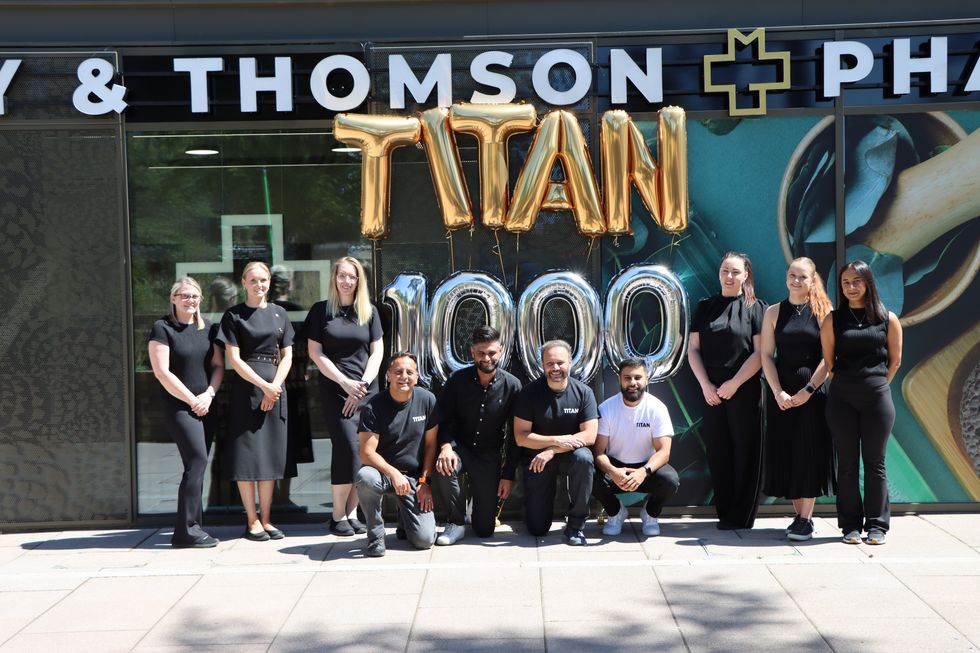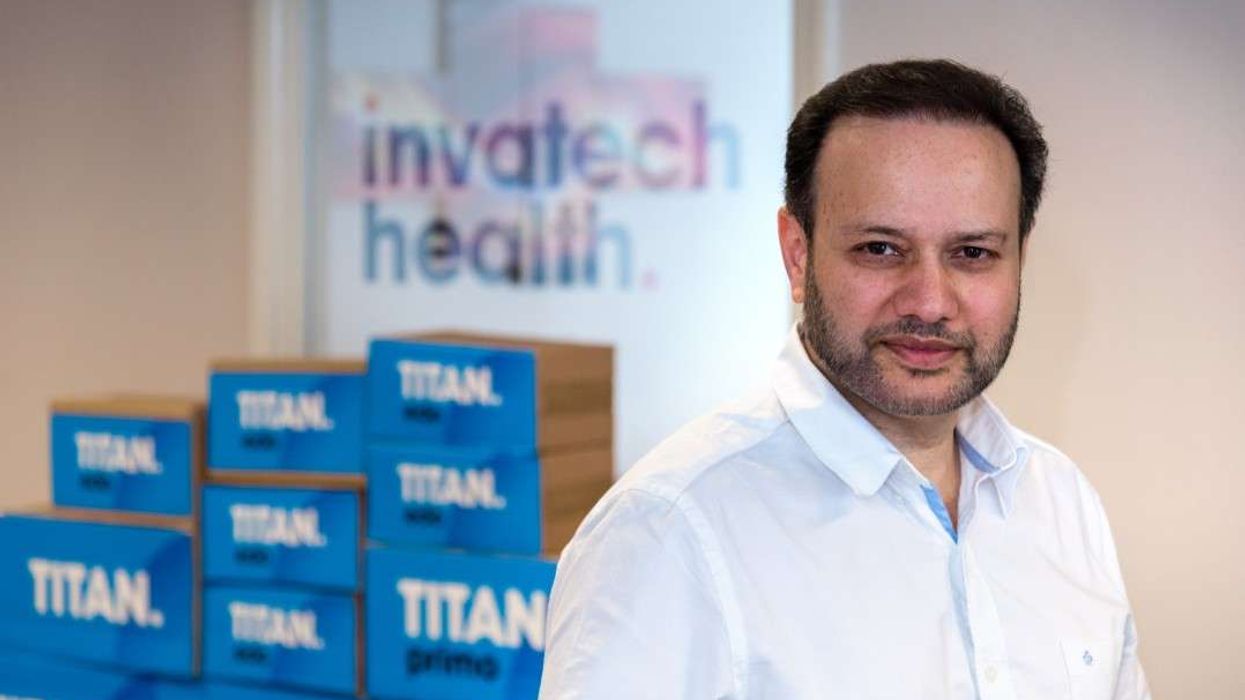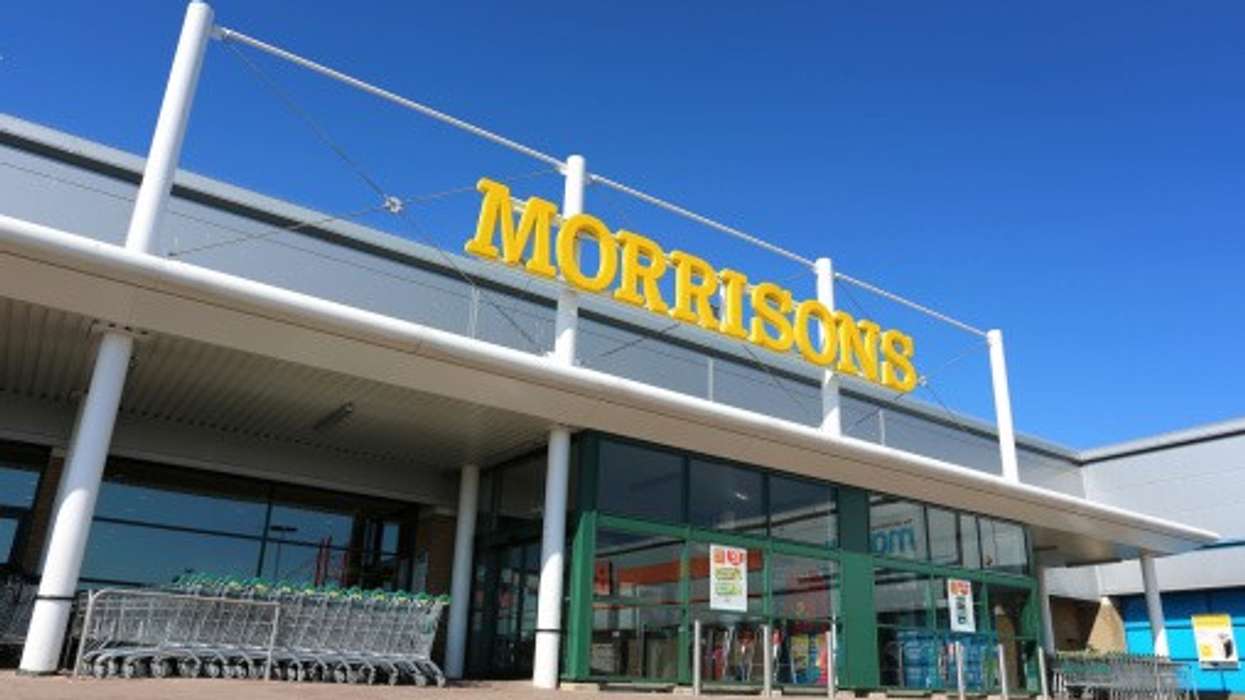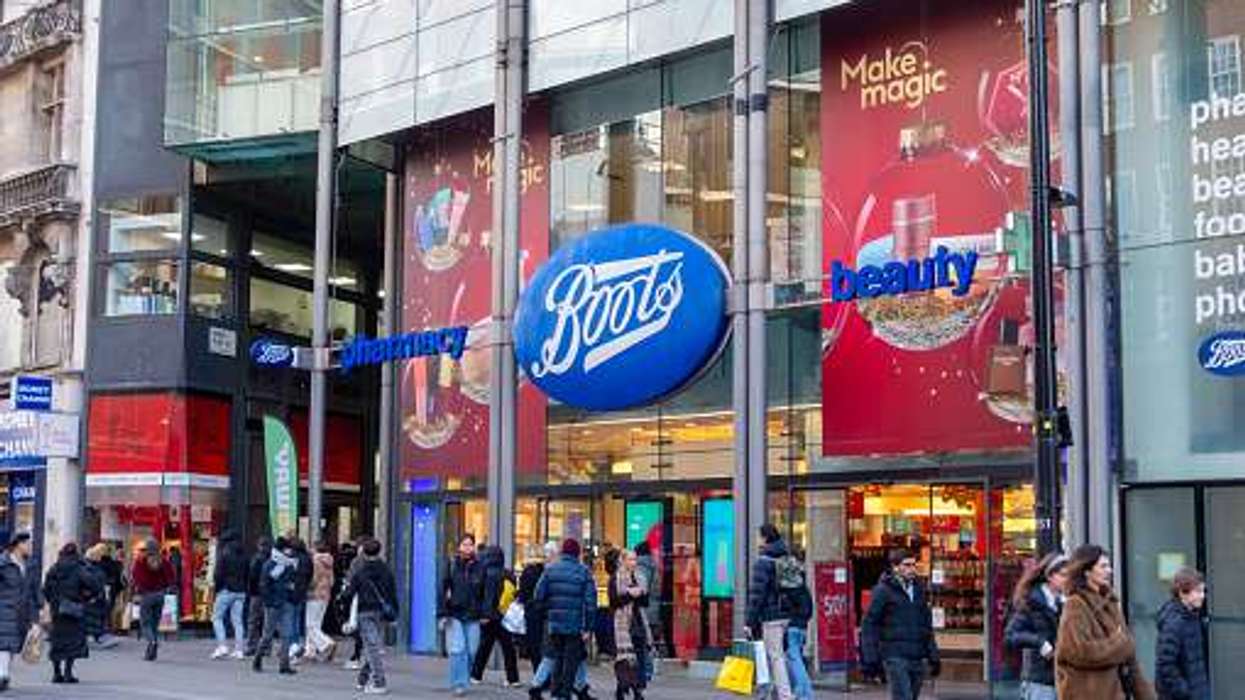Invatech Health founder Tariq Muhammad explains his 30-year journey to get community pharmacy to be recognised as a clinical professionals…
When May & Thomson Pharmacy in Woking became the 1,000th business to install the Titan PMR dispensing system last month, it gave Invatech Health founder and Tariq Muhmmad a moment to reflect on how he created this revolutionary technology from the ‘ruins’ of his first business.
Muhammad had previously spent 20 years building Pharmacy Plus – an organisation that had acquired 25 pharmacies across the country and developed a new brand of service-led pharmacies allowing pharmacists to play a significant role in medicines management and health outcomes.
“The reason why the Titan PMR tech is here today, is because of my old company Pharmacy Plus,” Muhammad told Pharmacy Business.
“The business grew to become very successful. At its peak, it was the largest pharmacy provider in the UK as a single site – we were doing a quarter of a million items a month from depos around the country. It was a huge enterprise that employed over 400 staff.”
Muhammad describes his decision to allow private investment into the company as the ‘worst decision of my life’ as within six months of the investors coming in, the business went bust.
Rather than wallowing in self-pity, Muhammad’s entrepreneurial mind kicked-in and within a month, he decided what he was going to do next.
“I had no business, I had no customers, I had nothing,” he said.
“The asset that I really had were the people that had grown up with me, the people around me that helped me grow Pharmacy Plus, and with these people we started Invatech Health and we rebuilt our software.
“We decided we're not going to be a pharmacy business anymore, we're going be a software business because we had the technology that we built over 20 years. That know how, every bit of pain point about how to run a pharmacy business on that scale, no one else has ever done.”
Titan PMR
Whilst at Pharmacy Plus, Muhammad oversaw the development of the Proactive Care System, the first electronic barcoding system for medication designed to achieve safety at the point of administration by nurses in care homes and replace paper medicines administration records.
The acquisition of the Intellectual Property Rights for PCS, was the key to setting up Invatech Health which is innovating in pharmacy and related sectors.
Muhammad developed additional solutions for care home medicines management which are now known under the re-branded name of Atlas. The Atlas family is now the market leader in electronic medicine management systems for care homes.
“I sold that business in 2022 - from the ruins of my old business came the success that was Atlas and after I exited that business, I started another business around that same time which was Titan,” said Muhammad.
“Titan contains all of the know-how of 20 years of how to run a pharmacy business. We solve problems that pharmacists don't even know there's a problem because I've been there, I've got the t shirt.
“Titan is the blood, sweat and tears of people who know what it's like to run a business - that's what's gone into it and Titan is a success because of that.”
In 2019, Titan became the first cloud-based patient medication record (PMR) software to be accredited by the NHS.
Its pharmacy numbers have doubled in the past 18 months alone with Muhammad expecting to reach 2,000 pharmacies in the next three years.

“In the past five years or so we’ve become the benchmark for revolutionising this sector, disrupting the market along the way and offering pharmacists the opportunity to innovate and focus on new areas of business growth,” said Muhammad.
“Patients are enjoying visiting pharmacies which are calm, organised and where pharmacists can offer them their direct attention.
“We now see pharmacists as being uniquely placed to use their training, combined with the power of innovative technology, to help patients and to lighten the burden carried by the NHS.”
Muhammad added that he expects Titan usage to continue to grow significantly while focus shifts to rolling out Titanverse, a pharmacy management system for clinical services.
“The next step for our business is to continue to attract more services, and support it with our groundbreaking workflow platform Titanverse. Together, our products are changing the face of pharmacy in the UK,” he said.
A reflective Muhammad adds that if his first business never went bust, there would be no Titan.
“I’d still probably have Pharmacy Plus, still be chasing prescription,” he said.
“It was a successful business but it was never financially successful, which is why it was so fragile and all it took was a small wind of some private equity investors to come along and push it a little bit for it to fall over.
“We're seeing it now, pharmacy businesses across the country, some with a chain of over one hundred pharmacies, reporting losses.
“On the face of it, they look very impressive buy many pharmacies are financially in a very fragile position.
“I suspect I'd probably still be running that business but trying to find a way to get out of it. The best thing that probably happened to me was just knock the whole thing over and do it differently.
“In many ways, sometimes life plays out and it works out.”
Ahead of the curve
In July, the government announced that community pharmacy will play a ‘vital role’ in the government’s plan to transform the NHS as it outlined its 10 Year Plan.
They said that over the next five years, community pharmacy will transition from being focused largely on dispensing medicines to becoming integral to the Neighbourhood Health Service, offering more clinical services.
Muhammad was an early advocate for community pharmacies being clinical services-led and is critical of the lack of progression within the sector.
“If you go back to the 90s, I think we devalued ourselves, we degraded ourselves - I hated what pharmacy had become,” he said.
“We complain that we look like shopkeepers, but then if we continue to make our pharmacies look like shops then don't be surprised that people look at us as shopkeepers.
“The purpose of my business was to change the needle on that, and to say, ‘no, we're a profession we're here to provide clinical services’.
“I was doing clinical services when people didn't even know what clinical service were. We were the first to have consulting rooms. I didn't have any retail in my pharmacy, we were a pure clinic and this was the 1990s.
“The vision I had was how can I make pharmacy something that's respectable.”
Innovating technology
His desire to be a services-led business indirectly led Muhammad to developing technology to assist him.
He decided that he could utilise technology to deal with a ‘host of issues’ related to things like staff management and financial aspects of the business.
“I had no idea about technology. This was the 90s, the internet was still in its infancy.
“I’m a pharmacist, but I read up and learned programming to write my first program which I then put into a warehouse so I can centralise my stock management and asked my team to see if it works.”
There were other PMRs at the time and Muhammad was using a number of them in his pharmacies.
“I went to all of them and said, ‘look, guys, your PMR is a load of rubbish’,” he said.
“I had over 20 businesses and I need these things to run my business because it's not working for me. I've got all these problems – I can’t keep ordering the wrong stuff. I needed these problems to be fixed in order for my businesses to reach their full potential.”
Muhammad felt his vision for his businesses was being hindered by these day to day challenges.
The responses from PMR companies he used were ‘very arrogant and very demeaning’.
“It was that anger that I thought ‘screw you, I’m going to do it myself’. I made my own program and it worked. And then I made another program, and then another one, and then I got a team of people to work on it and then my brother (Wahid) joined me in 1999 and took over the programming side. We had a whole department and we made our own PMR.”
Muhammad insists his mission right from the beginning of his career back in 1994 was to ‘enhance the perception of pharmacy’.
“I want to change the trajectory of pharmacy - I want us to be more clinical, which is what I've been trying to do all this time,” he said.
“I believe we should have our own vision, we should not be dictated by the government's vision.
“Pharmacy has been put into a very weak position because we've allowed ourselves to be bullied around by the NHS.
“We've got abilities to do things like independent prescribing that we've never had before. We've got all the skills in our pharmacies to run a range clinical services - technology is simply the vehicle to get us there.”












